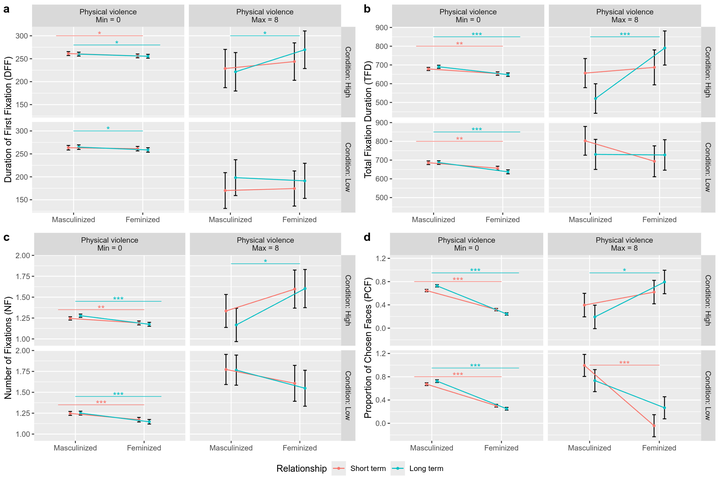Resource availability and experiences of partner violence shape facial masculinity preferences in women

Resumen
Women’s preferences for facial masculinity in men are influenced by individual and socio-contextual factors that allow them to balance costs-benefits in pursuit of their well-being. This study examined how Colombian women’s preferences for masculinized male faces are influenced by relationship context and resource availability, as well as their individual experiences of intimate partner violence (IPV). We used a forced-choice paradigm with eye-tracking technology to assess visual attention and face choice in 293 cisgender heterosexual women. Participants were randomly assigned to either a high or low resource availability condition and asked to choose a preferred partner for short- and long-term relationships. We also collected self-reported experiences of IPV. The findings revealed a strong preference for masculinized faces in both short- and long-term relationships, with a greater preference observed in long-term contexts and under low resource availability. However, women who reported higher levels of physical IPV showed a reduced preference for masculinity, particularly in long-term relationships and in contexts of high resource availability. These results suggest that while Colombian women generally exhibit strong preferences for masculine traits, socio-contextual factors, such as resource availability and experiences of IPV, significantly modulate these preferences. The study highlights the complex interplay between individual, evolutionary, and socio-ecological factors in shaping mate preferences, supporting the idea that masculinity is valued differently based on relationship goals, resource conditions, and individual experiences such as intimate partner violence.